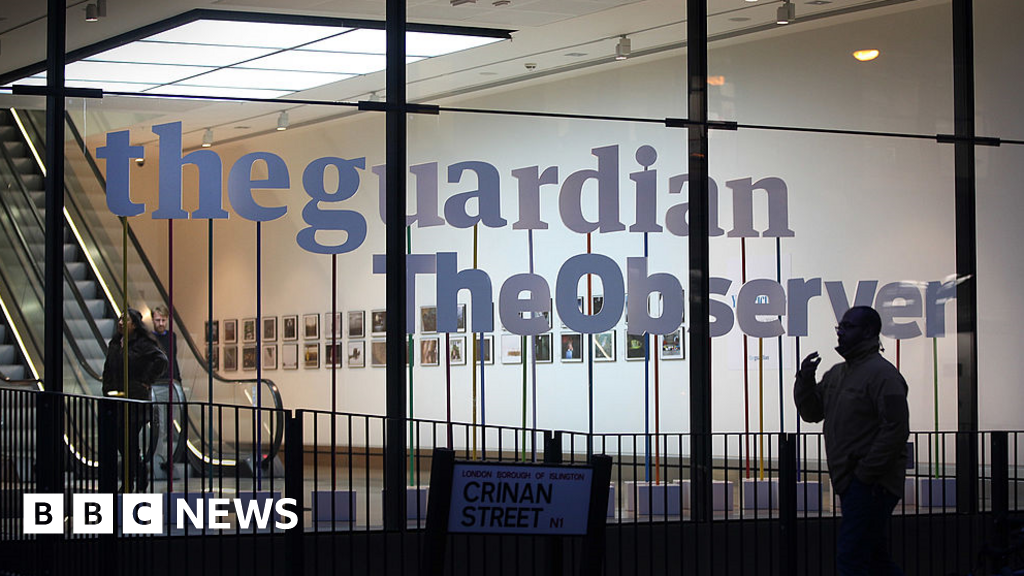Good morning. If Intel is sold — Qualcomm is circling — it will be a blow to the view that tech oligarchs are forever. It took 15 years or so, but the mobile and AI revolutions took a company that had a stranglehold on computer processors and turned it into a second-tier player. What is the parallel scenario that unseats Google, Nvidia, Apple, Microsoft or Meta? And how long does it take? Email us possible futures: robert.armstrong@ft.com and aiden.reiter@ft.com.
Central bank epiphenomenalism
We asked a few weeks ago whether Jay Powell was lucky or good: whether smart Fed policy caused, or merely coincided with, the rapid decline in inflation over the past two years. If you think Powell and the Fed have mostly been lucky — and plenty of economists think they have been — one is tempted to push the scepticism further. What if the central bank rate policy is always a meaningless or near-meaningless sideshow in economies and markets? What if policy rates are (to use the vocabulary of the pretentious philosophy graduate student I was 25 years ago) mostly epiphenomenal — that is, accompanying important changes, rather than causing them?
Today, “heretical” is almost exclusively an honorific people bestow on their own beliefs, to mean “unique and wonderful”. But on Wall Street the view that Fed policy is epiphenomenal is heretical in the old-fashioned sense. If it is true, a lot of what investors, analysts and pundits say, do and believe are just elaborate rituals honouring a deity that doesn’t exist.
Serious people take this view. Aswath Damodaran of New York University (who will be familiar to Unhedged readers from our interview with him) recently updated his defence of Fed epiphenomenalism on his blog. He argues that:
-
The federal funds rate, set by the Fed, is a single, short term rate that does not determine in any significant way the important interest rates — on mortgages, car loans, credit cards, corporate bonds or business loans, and so on.
-
While both the federal funds rate and important interest rates follow the same very long-term trends, over shorter (but nonetheless meaningful) periods, the relationship between changes in the federal funds rates and the “real world” rates is all over the place. Sometimes one rises and then the other falls, or the reverse, or there seems to be no relationship at all. Consider the federal funds rate and the triple-B bond yield, for example. Between the spring of 2004 and the summer of 2006, the Fed rate rose by more than 4 percentage points. Triple B’s moved by less than 1 per cent. The market all but ignored a very aggressive Fed.

-
There may be some casual power in Fed signalling: markets might incorporate the belief that the Fed knows something about the economy that others don’t, or that the Fed actually can control interest rates somehow. But outside of crisis situations, these effects are mild.
-
In sum, “the Fed is acting in response to changes in markets rather than driving those actions, and it is thus more follower than leader”. Nominal interest rates have two fundamental drivers, neither of them under central bank control: real rates (which vary with expected economic growth) and expected inflation. For example, rates were not so low during the pre-pandemic decade because the Fed suppressed them, but because growth was weak and there was no inflation in sight.
Damodaran is not alone. Last year, the Financial Times’ own Martin Sandbu, in a piece entitled “What if there is nothing central banks can do about inflation?” argued that
[T]here is solid analysis that can account for virtually all the behaviour of both US and Eurozone inflation as just what the temporary repercussions from sector to sector of a series of large supply shocks would look like . . . [If] this is in fact the true explanation of events . . . there was nothing monetary policy could have done to prevent the bursts in inflation of the past two years, and that current monetary policy is contributing nothing to inflation coming back down.
Sandbu doesn’t go all the way to policy epiphenomenalism. He thinks that rate policy can have effects, but that this time around they will be “exclusively harmful” because they will weaken the economy when inflation is already dead. But it is easy to see how his argument might be extended to other inflationary incidents that followed supply shocks, and perhaps beyond.
Over in The Wall Street Journal, my former colleague Spencer Jakab makes a similar point in the context of the stock market, comparing chair Powell to the Wizard of Oz:
The great and powerful man behind the central bank curtain, Jay Powell, really can’t do as much as people think to keep their portfolios from shrivelling if the wheels are already starting to come off the economy
He uses the example of the rate cut in 2007, which initially triggered a surge in stock prices, but could not — even when reinforced by many further cuts — stop a recession from starting a few months later. Even in less extreme moments, Jakab argues (citing work by David Kostin, Goldman’s chief US equity strategist) economic momentum, not Fed policy, has been decisive for markets during rate-cutting cycles. Jakab doesn’t go as far as Damodaran, who argues that rate policy is pulling on a lever that is not connected to anything. But his argument points very clearly in that direction.
There is a longer argument to be had about whether central bank epiphenomenalism is true. To prove the case, one would have to describe, and refute, the standard theory of how policy rates control other interest rates. But let’s assume that epiphenominalism is a possibility. The interesting question for investors is: what would you do differently if you know the Fed followed, rather than led, markets and the real economy?
For one thing, you would be a lot less worried about “Fed mistakes” — specifically Fed over-tightening that leads to recession. Recall that many people, Unhedged among them, were very worried about this in 2022, and were probably underexposed to risk entering the glorious year of 2023 as a result. But if investors had ignored the Fed’s tightening, and looked instead only at the economic fundamentals and company cash flows, might they have stayed bullish instead?
One good read
On the US balance of payments.
FT Unhedged podcast

Can’t get enough of Unhedged? Listen to our new podcast, for a 15-minute dive into the latest markets news and financial headlines, twice a week. Catch up on past editions of the newsletter here.



































































































































You must be logged in to post a comment Login